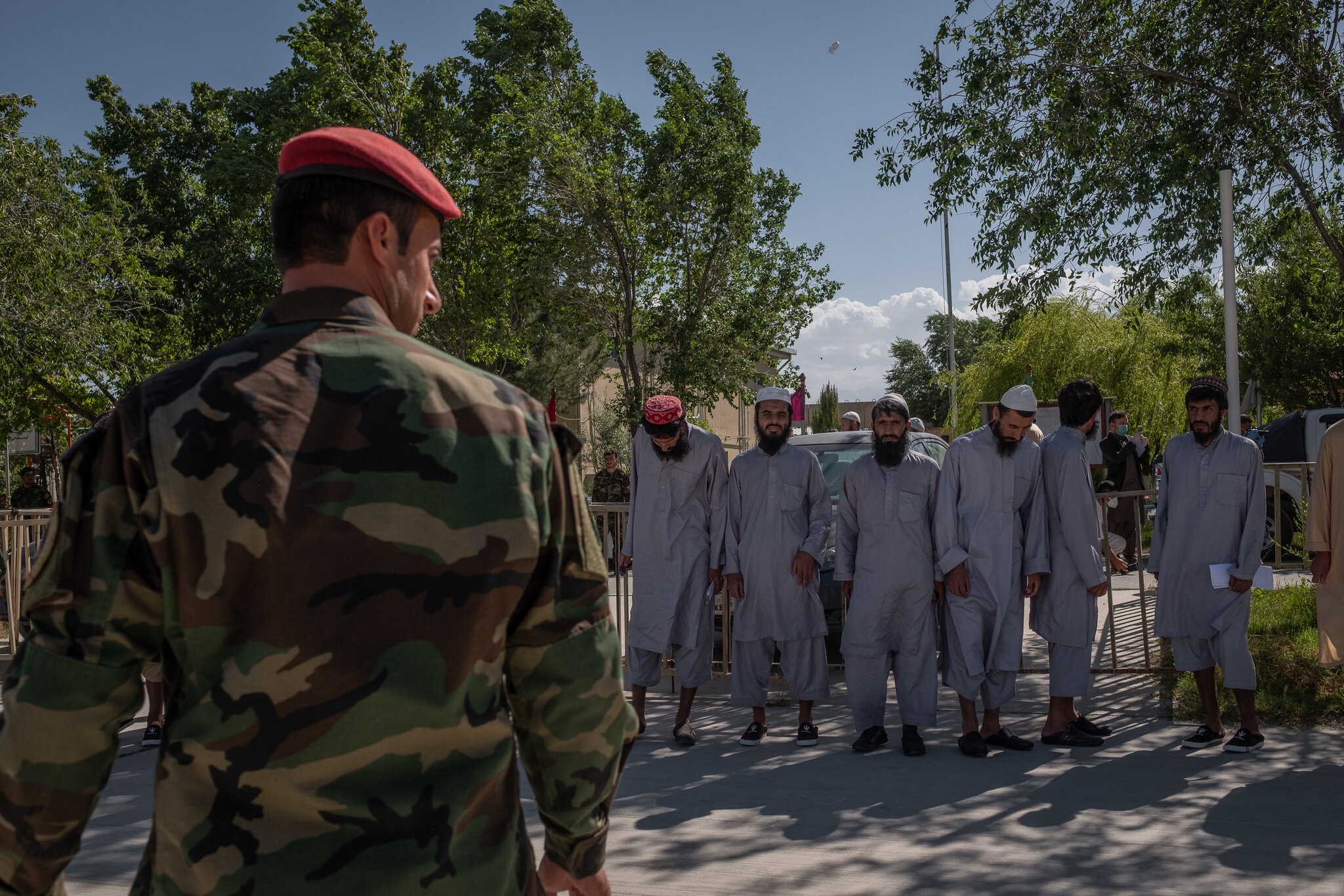President Ashraf Ghani of Afghanistan on Sunday said his government would release a last batch of Taliban prisoners, removing the final hurdle in the way of direct negotiations with the insurgents to end the country’s long war.
His announcement came after a consultative assembly where he had been advised by thousands of representatives from across the country.
The release of 5,000 Taliban prisoners, which the United States agreed to in a February deal with the insurgents that also began the phased withdrawal of American troops, faced opposition from the Afghan government, which is holding the prisoners. After prolonged pressure from the Trump administration, Mr. Ghani released 4,600 prisoners from a list provided by the Taliban but called for consultations over 400, who he said were accused or convicted of major crimes, including murder, that were beyond his authority to pardon.
At the start of the consultative assembly, on Friday, more than 3,000 delegates crammed themselves under one tent in the capital, Kabul, despite fears of the coronavirus. Mr. Ghani said his government was at a crossroads.
“The Taliban have said that if the 400 prisoners are released the direct talks between our negotiating team and the Taliban will start three days later,” he said in his pitch to the delegates, seeking their advice. “In the meantime, they have threatened that if they are not released, not only they will continue their war and violence but they will escalate it.
On Sunday, after two days of deliberations spread across more than 50 committees, the assembly released a declaration calling for the release of the prisoners. The mood in the hall was often tense. One delegate, a member of Parliament who carried a sign that read, “Giving into Taliban bullying is treason,” was violently pushed out of the hall and tackled by a staff member when she resisted.
President Ghani said he would sign the decree on Sunday freeing the 400 prisoners.
“We faced a choice, and our decision was made easier today,” he said.
In a statement presented to the participants of the assembly, the American secretary of state, Mike Pompeo, said that the Taliban have committed to beginning direct negotiations after the prisoners are released and have pledged to reduce the level of violence during the talks, during which a permanent cease-fire will be discussed.
“ The United States intends to hold the Taliban to these commitments,” Mr. Pompeo said.
Many delegates said it appeared that the Afghan government had already given in to U.S. pressure to release the remaining prisoners. The assembly, convened solely for consultation and with no executive power, was a way for Mr. Ghani to share political responsibility, they said. Representatives from several committees added that they were asked to give affirmative or negative recommendations on the release of the 400 prisoners without being provided details of what the prisoners were accused or convicted of.
Over the past couple of months, officials gave varied reasons as to why they could not release the remaining prisoners. Some said the group included foreign citizens convicted of murder and the government did not have the authority to offer forgiveness on behalf of victims’ families. Other officials said some of the prisoners were drug dealers or members of organized-crime gangs, unaffiliated with the Taliban. Those criminals, however, were included on lists of prisoners whose release the Taliban demanded.
A government document left some question as to the crimes of the named prisoners. It said 156 of the 400 prisoners had been sentenced to death, 105 were convicted of homicide, 34 of kidnapping and 51 of narcotics trafficking. A handful were convicted of rape. But it also said that 44 had been “blacklisted” by the Afghan government and its partners. The crimes of four prisoners were listed as “unidentifiable.”
Mohammad Ali Akhlaqi, a member of Parliament who was a delegate, said that in the committees the delegates were given a clear choice: that the only obstacle blocking direct negotiations with the Taliban was the release of the remaining prisoners. The Taliban had committed to beginning the talks right away if the prisoners were released, or ratcheting up the violence if they were not.
“Obviously, people want the bloodshed to be stopped,” Mr. Akhlaqi said. “The question is misleading. As the president himself said, he is not authorized to release these 400 prisoners because they have committed major crimes and they already have been sentenced.”
“When the president can’t release them, how can the Jirga release them?” he added, referring to the consultative assembly. “The Jirga isn’t above our Constitution.”
Mr. Ghani’s government has found itself in an unenviable position, with his officials feeling that the United States has lent legitimacy to the Taliban with a rushed peace process that has deeply undermined the Afghan government. American diplomats, driven by President Trump’s urgency to get out of Afghanistan, were clamoring for a deal to avoid the threat of Mr. Trump pulling out without one. They agreed to the withdrawal of the remaining U.S. troops from Afghanistan over 14 months and the release of the 5,000 prisoners in talks that had excluded the Afghan government.
The February agreement called for the release of the Taliban prisoners within 10 days. Mr. Ghani has used his control over the fate of the inmates as a way of showing the Taliban that his government will not be pushed around. But the delay in getting to the negotiating table has raised concerns that the Americans will complete their withdrawal before the two Afghan adversaries come to an agreement over a future system of governance and power-sharing.
On Saturday, Mark Esper, the U.S. defense secretary, said that the number of American troops in Afghanistan will be reduced to below 5,000 before the end of November, down from a little over 12,000 at the time of the agreement’s signing in February.
The Afghan government’s gathering of more than 3,000 people under one tent was criticized by health experts who feared the breach of coronavirus restrictions would fuel the pandemic’s spread.
Just before the assembly, at least 17 representatives tested positive and were taken to hospitals, the Health Ministry said. Khushal Nabizada, the director of public health for Kabul, said the results of the delegates’ tests had come in before the first meeting, and that the delegates had been sequestered away from the assembly.
Although Afghan officials said all delegates were tested before being allowed to participate, many of the delegates said they were never tested. Some of the 17 who tested positive may have also mingled among other delegates during a check-in process.
“There are 70 people in our committee,” said Masuma Bahar, a delegate. “I asked two women next to me and both said they hadn’t been tested.”













